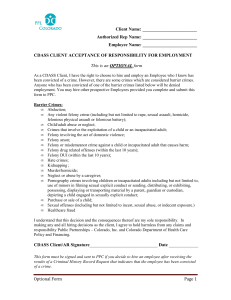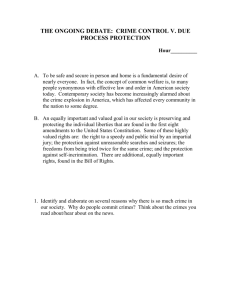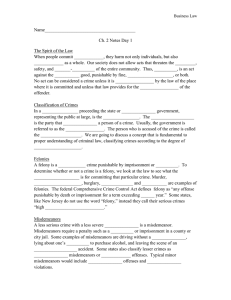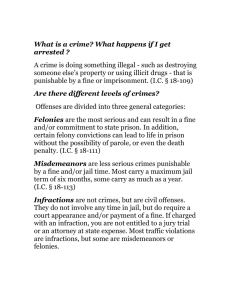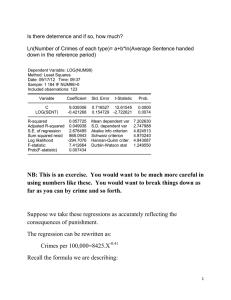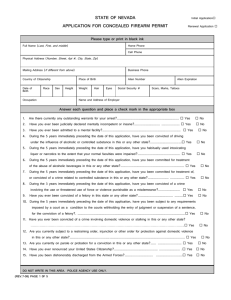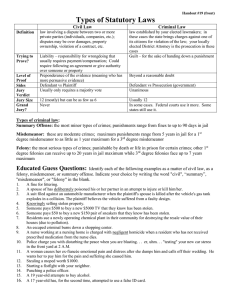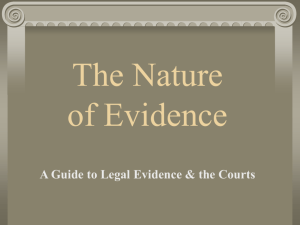Crimes & Consequences
advertisement
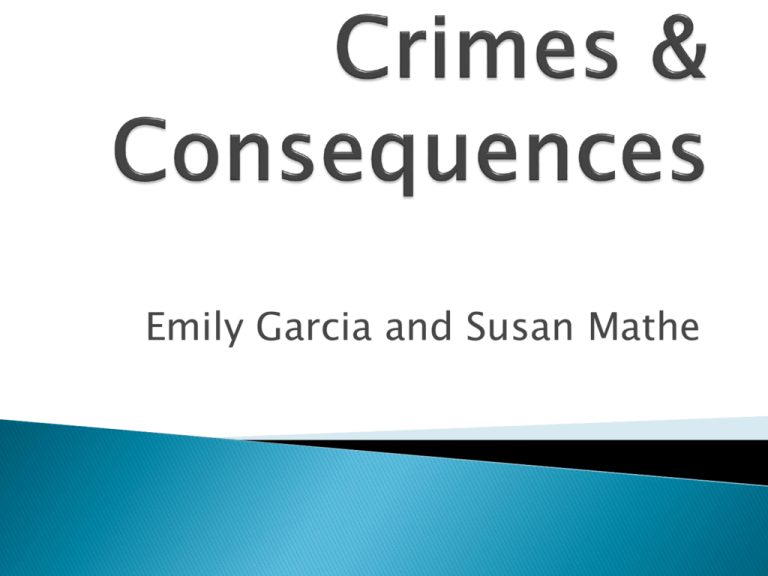
Emily Garcia and Susan Mathe crime is doing something illegal — such as destroying someone else’s property or using illicit drugs — that is punishable by a fine and/or imprisonment. Levels of Crime: Felonies are the most serious and can result in a fine and/or commitment to state prison for more than a year. In addition, certain felony convictions can lead to life in prison without the possibility of parole or even the death penalty. Misdemeanors are less serious crimes punishable by a fine and/or up to one year of jail time. Infractions usually do not involve any time in jail, but do require a court appearance and/or payment of a fine. If charged with an infraction, you are not entitled to a jury trial or an attorney at state expense. Some traffic violations are infractions. IGNORANCE OF LAW IS NOT AN EXCUSE What happens if I am arrested? You will be searched, handcuffed and taken to a police station. You also will be advised of your rights. You will have the opportunity of a phone call. Practice caution while speaking and acting, nothing while under arrest is private. Once you have identified yourself, you can refuse to discuss your case with police. Law enforcement officers cannot threaten you or force you into answering questions. Nor can they offer you leniency in exchange for any written or oral statements. What happens after I have been arrested and booked? Typically, you would be taken to court for an “initial appearance” within 24 hours. If you were arrested on a weekend; however, you might have to wait until Monday morning when court opens. To lie under oath is itself a crime. Driver’s license may be denied Prevent a person from being accepted by the college or university A person who has been convicted of a crime may be prevented from entering the armed forces or, if accepted, may not be given a com- mission or a security clearance. Felon does not have the right to vote. ● Many businesses require employees to be bonded. An insurance company usually refuses to bond anyone who has been convicted of a felony. ● Some employment may be closed to those convicted of crimes or those who, while minors, committed offenses which would be considered crimes if committed by an adult. ● If you are not a citizen and you are convicted of violating any law or regulation of a state, the United States or a foreign country, you could be deported and prohibited from returning to this country. Also, law enforcement agencies are required to notify United States Immigration Services regarding the arrest of anyone who is not a citizen Transporting a stolen vehicle across state lines. Mailing matter that is obscene or in cites crime. Transporting or importing narcotics. Forgery of government checks. Possession of stolen mail and items — such as credit cards — which have been stolen from the mail. Robbery or burglary of a bank or savings and loan institution
